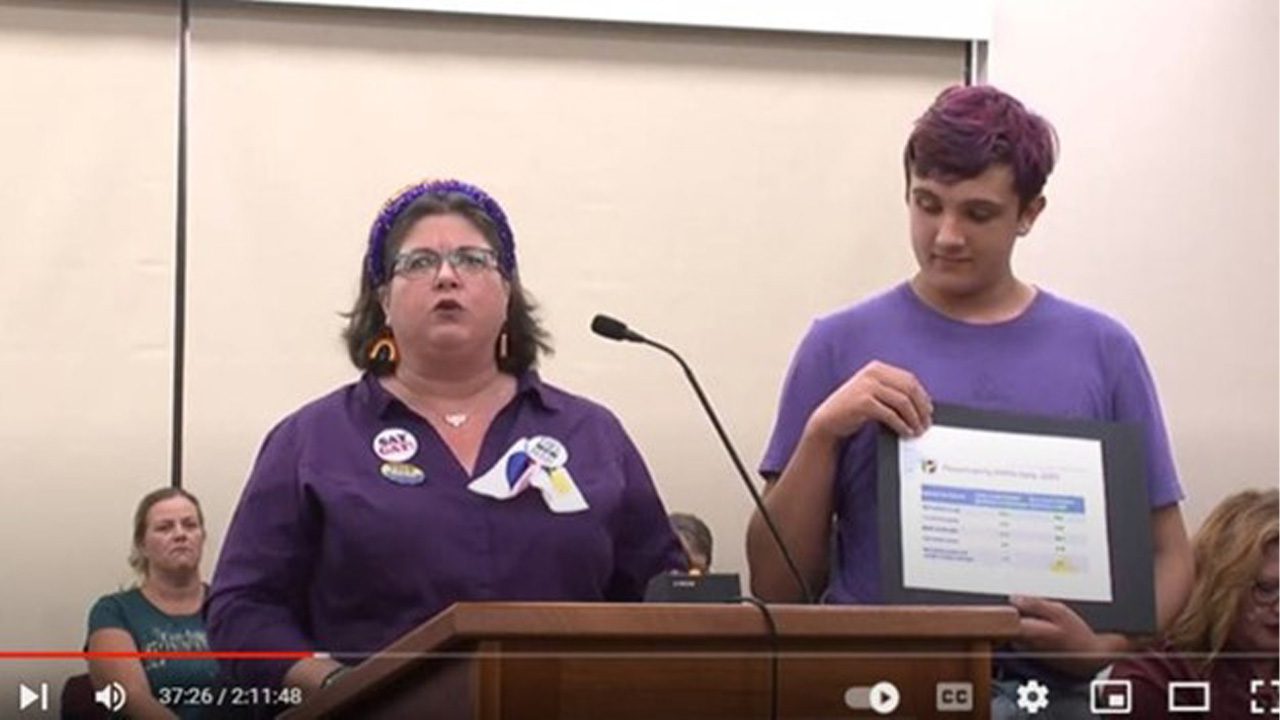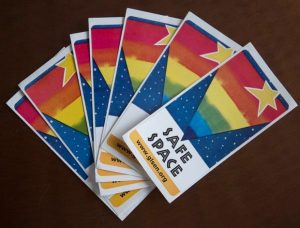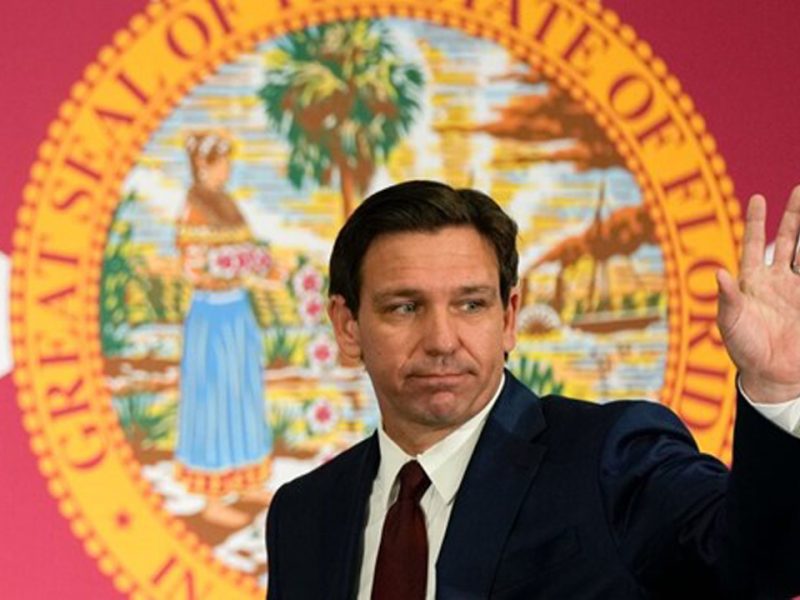
Bring ‘safe spaces’ back to Florida schools, says plaintiff in settled case
The Pasco County teacher who helped challenge the Parental Rights in Education law — also known as Don’t Say Gay — has already made the change in her classroom.
Tampa Bay Times | By Jeffrey S. Solochek | March 14, 2024
Myndee Washington didn’t hesitate after learning the State of Florida had settled a lawsuit challenging the constitutionality of the law she called Don’t Say Gay.
The Pasco County teacher, who was a plaintiff in the case, put on her new rainbow-frame glasses and headed to school. Once there, she returned the “safe space” sign she had removed from her classroom two years earlier.
“I have Safe Space stickers for anyone that would like one,” Washington also posted on Facebook.
The stickers typically have rainbow designs and indicate support for LGBTQ+ students.

The Pasco County school district, citing Florida law, ordered all “safe space” stickers removed in September 2022. [ Times (2017) ]
She noted the settlement makes clear that the Parental Rights in Education law “does not require the removal of safe space stickers, which are not classroom instruction.” Washington said she wants the school district, which directed employees to remove the signs and stickers because of the law, to clear the way for all teachers to bring them back if they want.
“I absolutely intend to be at the next school board meeting to say the law has now been defined,” she said. “We will be asking for a reversal on that.”
Early Tuesday, districts across the state received a copy of the signed agreement, which spells out the do’s and don’ts of the law. Pasco officials said they had no immediate plan to change course while they consult with lawyers and await any additional information the state might provide.
“We have to be sure we’re following the law,” board chairperson Megan Harding said.
Superintendent Kurt Browning explained during a September 2022 meeting that taking the stickers out of classrooms did not mean the district would not provide a safe learning environment. His concern centered on the possibility of misleading students into thinking they could confide in teachers about personal issues and be guaranteed their parents would not know.
“This district has no choice — has no choice — because the law says under the Parents Bill of Rights that there are no such thing as safe spaces as we’re defining safe spaces,” Browning said, after a half-dozen people spoke against the sticker ban. “I did not want anyone to hide behind or to think that because they had a sticker on the window that it was some magical safe place that kids could … still come to them and share personal information.”
Washington and her fellow plaintiffs — 13 other individuals, their children and two organizations — sued over such interpretations, which their lawyers argued extended beyond the scope of the law. They contended that, lacking clear definitions and guidelines from the state, the law created a chilling effect on how schools dealt with LGBTQ+ students and issues.
In her own experience, Washington said, Gay-Straight Alliance clubs disappeared. She had been a sponsor, and her son, attending a local high school, had been a member.
She saw schools censor LGBTQ+ references in music and drama offerings, and remove books with LGBTQ+ themes. And she watched teachers become afraid to speak up because of the law’s implicit threat of educators being sued, which the state did not try to dissuade.
Her son, Wyatt, said his teachers did not stop supporting him. But they did sometimes say it would be better if they just didn’t talk about issues relating to gender identity and sexual orientation.
The settlement answered most of these concerns, said Washington, who works at a charter school. It made clear that the law does not prohibit Gay-Straight Alliances or similar clubs, for instance. It also states that teachers are free to respond if students discuss their identities or family life.
Being part of the lawsuit made sense, Washington said, because it extended her role as an advocate for the LGBTQ+ community. Seeing how some lawmakers did not try to hide their views and intentions left her dejected and seeking ways to become more effectively involved.
“The obvious answer for me was to become more educated,” said Washington, who this spring is completing her master’s degree in equity and diversity in education from the University of Nevada-Reno online.
Her studies have further bolstered her enthusiasm for advocacy. Washington said she plans to offer insights and training to any teachers who ask on how to best work with the diverse needs of students.
She also is coordinating with Equality Florida to create a coalition of families and organizations “so we can be at the school board, be the voice for our progressive families and our progressive students.”
Bigger picture, her desire is to protect all children’s rights, regardless of labels.
“My passion is supporting all students,” Washington said. “When we say in Pasco County we want a world class education, it should be for every single student who walks through the door of a school.”





